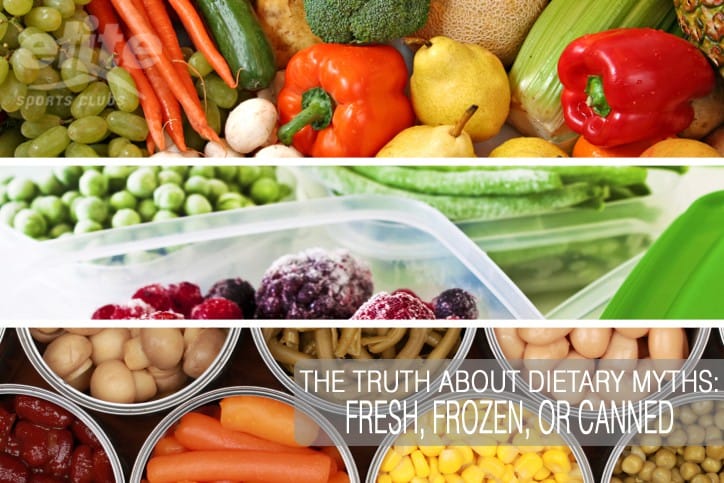
Should we use canned fruits and vegetables? Aren’t fresh vegetables really the best you can use in cooking?
For years we have been instructed to use fresh or frozen fruits and vegetables, identifying them as the best for nutrition. Many times, the nutritional conversation outlines that fresh or frozen are the best for nutrients and the best for fiber. Today, this message has all changed. Individuals are encouraged to use what best fits their needs and schedule. But, for the most part, research done by independent studies has shown that, fruits and vegetables, fresh, frozen, and even canned, are very comparable.
The Retail Grocery Inventory Services has conducted studies recently with the cooperation of the Dole and Del Monte companies. Basically, they have agreed that there is very little difference in the nutritional aspects of the fruits and vegetables studied from different forms.
For us, there is going to be a difference. The taste of frozen, fresh, and canned fruits and vegetables will be altered based on the type of preparation and our personal preferences. Through the years, some concern has been raised about the preparation in our kitchens of primarily vegetables that sit too long in the refrigerator. In addition, there have been concerns regarding the fast frozen to thaw process for frozen fruits and vegetables that invariably will occur during processing and delivery. All of these processes tend to reduce the overall nutrient content of the foods that will make them less desirable for us. Cooking methods, primarily fast cooking at high temperatures will quickly reduce nutrient content of fresh or frozen vegetables.
Canned fruits and vegetables, while less desirable in taste, have been already processed in a controlled environment, and will not go through any further “denaturing” as we prepare foods. Canned fruits and vegetables do provide some extension of my refrigerator and will have a long shelf life. They are, at least, a good choice in a pinch, where fresh may not be available. You might not need to go to the grocery for just one item.
Keep this in mind for cooking those good recipes you desire; and just realize that swapping in fresh, frozen, or canned will not hurt your final product and will carry approximately the same nutrients.
Have a great week! Plan something wonderful in your kitchen tonight, you probably have all the ingredients you need on hand already!
Looking for more healthy tips? Set up a consultation with our nutrition coaches!
By Rita Larsen, RD, CD; former Elite Sports Clubs Nutrition Educator & Diet Counselor
3 Comments
This is posted by Rita Larsen
Hi Maryanne,
Thanks for the response to my blog. I understand your question and concern. I do feel though that the canned products have a place in our kitchens. I would suggest looking for those items, fruits and vegetable based, that are free of sugar and salt. I purchase them all the time, as fruit packed with juice or water, and vegetables with low salt or no salt. I like to use them when my recipes need an added boost of color and taste, and I do not have their fresh or frozen counterpart. Thanks, Rita
Hi Rita,
I enjoyed reading your blog post about frozen vs canned vs fresh fruits and veggies. Lately, I've been reading and hearing a lot of how bad high fructose corn syrup and sodium is for the body. What are your thoughts about the high fructose corn syrup and sodium in canned fruits and veggies?